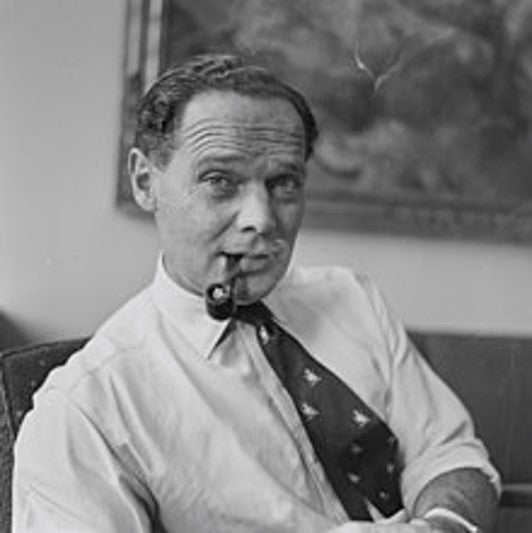BRITISH PILOTS
James Edgar Johnson
Air Vice Marshal James Edgar Johnson, CB, CBE, DSO & Two Bars, DFC & Bar, DL (9 March 1915 – 30 January 2001), nicknamed "Johnnie", was an English Royal Air Force (RAF) pilot and flying ace who flew and fought during the Second World War. Johnson grew up and was educated in the East Midlands, where he qualified as an engineer. A sportsman, Johnson broke his collarbone while playing rugby, an injury that later complicated his ambitions of becoming a fighter pilot. Johnson had been interested in aviation since his youth and applied to join the RAF. He was initially rejected, first on social, and then on medical grounds; he was eventually accepted in August 1939. The injury problems, however, returned during his early training and flying career, resulting in him missing the Battle of France and the Battle of Britain between May and October 1940. In 1940 Johnson had an operation to reset his collarbone, and began flying regularly. He took part in the offensive sweeps over German-occupied Europe from 1941 to 1944, almost without rest. Johnson was involved in heavy aerial fighting during this period. His combat tour included participation in the Dieppe Raid, Combined Bomber Offensive, Battle of Normandy, Operation Market Garden, the Battle of the Bulge and the Western Allied invasion of Germany. Johnson progressed to the rank of group captain by the end of the war.

Johnson was credited with 34 individual victories over enemy aircraft, as well as seven shared victories, three shared probable, ten damaged, three shared damaged and one destroyed on the ground.[8][9] Johnson flew 700 operational sorties and engaged enemy aircraft on 57 occasions.[10] Included in his list of individual victories were 14 Messerschmitt Bf 109s and 20 Focke-Wulf Fw 190s destroyed making him the most successful RAF ace against the Fw 190. This score made him the highest scoring Western Allied fighter ace against the German Luftwaffe.[a] Johnson continued his career in the RAF after the war, and served in the Korean War before retiring in 1966 with the rank of air vice marshal. He maintained an interest in aviation and did public speaking on the subject as well as entering into the business of aviation art. Johnnie Johnson remained active until his death from cancer in 2001.
Sir Douglas Robert Steuart Bader
Group Captain Sir Douglas Robert Steuart Bader, CBE, DSO & Bar, DFC & Bar, DL, FRAeS (/ˈbɑːdər/; 21 February 1910 – 5 September 1982) was a Royal Air Force flying ace during the Second World War. He was credited with 22 aerial victories, four shared victories, six probables, one shared probable and 11 enemy aircraft damaged.[1][2] Bader joined the RAF in 1928, and was commissioned in 1930. In December 1931, while attempting some aerobatics, he crashed and lost both his legs. Having been on the brink of death, he recovered, retook flight training, passed his check flights and then requested reactivation as a pilot. Although there were no regulations applicable to his situation, he was retired against his will on medical grounds.[3] After the outbreak of the Second World War in 1939, however, Douglas Bader returned to the RAF and was accepted as a pilot. He scored his first victories over Dunkirk during the Battle of France in 1940. He then took part in the Battle of Britain and became a friend and supporter of Air Vice Marshal Trafford Leigh-Mallory and his "Big Wing" experiments.

In August 1941, Bader baled out over German-occupied France and was captured. Soon afterward, he met and was befriended by Adolf Galland, a prominent German fighter ace.[4] Despite his disability, Bader made a number of escape attempts and was eventually sent to the prisoner of war camp at Colditz Castle. He remained there until April 1945 when the camp was liberated by the First United States Army. Bader left the RAF permanently in February 1946 and resumed his career in the oil industry. During the 1950s, a book and a film, Reach for the Sky, chronicled his life and RAF career to the end of the Second World War. Bader campaigned for disabled people and in the Queen's Birthday Honours 1976 was appointed a Knight Bachelor "for services to disabled people".[5] He continued to fly until ill health forced him to stop in 1979. Bader died, aged 72, on 5 September 1982, after a heart attack.
